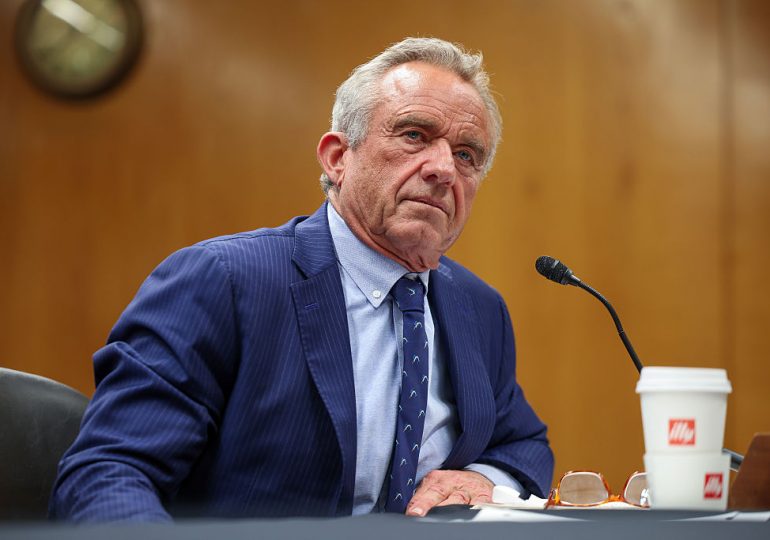Robert F. Kennedy Jr. said on Monday that he would be retiring all 17 members of a committee that offers recommendations on vaccines to the Centers for Disease Control and Prevention (CDC).
Writing in The Wall Street Journal, the Secretary of the U.S. Department of Health and Human Services (HHS) said the move was aimed at restoring public trust above any pro- or antivaccine agenda.”
[time-brightcove not-tgx=”true”]
The experts’ removal marks the latest action Kennedy, one of America’s most notorious vaccine skeptics, has taken to radically change the country’s immunization policy.
“Today, we are taking a bold step in restoring public trust by totally reconstituting the Advisory Committee on Immunization Practices (ACIP). We are retiring the 17 current members of the committee, some of whom were last-minute appointees of the Biden administration,” Kennedy wrote in the column. “Without removing the current members, the current Trump administration would not have been able to appoint a majority of new members until 2028.”
Here’s what to know about the move.
What is the Advisory Committee on Immunization Practices?
ACIP is “a federal advisory committee that develops recommendations on the use of vaccines in the civilian population of the United States,” according to the CDC.
Its membership consists of medical and public health experts who are knowledgeable about immunization and vaccines and do not work for the government or vaccine manufacturers, according to health policy nonprofit KFF. They are chosen by the HHS secretary to serve up to four-year terms on the panel.
The committee has great influence over the country’s immunization policy: The CDC sets adult and childhood immunization schedules based on the ACIP recommendations.
Why did RFK Jr. retire all the committee members?
Kennedy accused the committee of being “plagued with persistent conflicts of interest.”
“The public must know that unbiased science guides the recommendations from our health agencies,” he wrote. “This will ensure the American people receive the safest vaccines possible.”
ACIP members are thoroughly screened for any significant conflicts of interest.
Kennedy has a long history of spreading vaccine skepticism and other medical disinformation, including repeating the debunked claim that vaccines cause autism, despite overwhelming research proving that vaccines are both safe and effective. During his confirmation hearings, he said he’s not “anti-vaccine” but “pro-safety.” He previously said that he and the Trump Administration wouldn’t remove vaccines from the market.
Read more: RFK Jr. Denied He Is Anti-Vaccine During His Confirmation Hearing. Here’s His Record
Earlier this year, members of the Food and Drug Administration (FDA)’s expert committee on vaccines were informed that their upcoming meeting to decide which influenza strains should be included in the next flu shot was canceled. Last month, FDA officials said that they will no longer recommend annual COVID-19 vaccines for kids and most adults.
How are public health experts reacting to the news?
Public health experts immediately denounced the move. Dr. Bruce Scott, the president of the American Medical Association, said in a press release that, for generations, ACIP “has been a trusted national source of science- and data-driven advice and guidance on the use of vaccines to prevent and control disease.”
“Physicians, parents, community leaders and public health officials rely on them for clinical guidance, public health information, and knowledge,” Scott said. “Today’s action to remove the 17 sitting members of ACIP undermines that trust and upends a transparent process that has saved countless lives. With an ongoing measles outbreak and routine child vaccination rates declining, this move will further fuel the spread of vaccine-preventable illnesses.”
Kennedy’s nomination and confirmation to run the nation’s leading health agency sparked controversy and outrage among many public health experts due to his history of promoting vaccine skepticism and medical disinformation.
What happens next?
HHS said in a press release that the committee members will be replaced “with new members currently under consideration,” but did not offer any further details. ACIP will next convene from June 25 through June 27, according to the department.
Leave a comment




